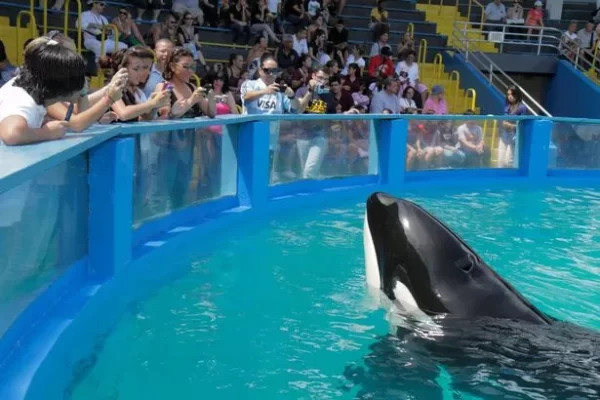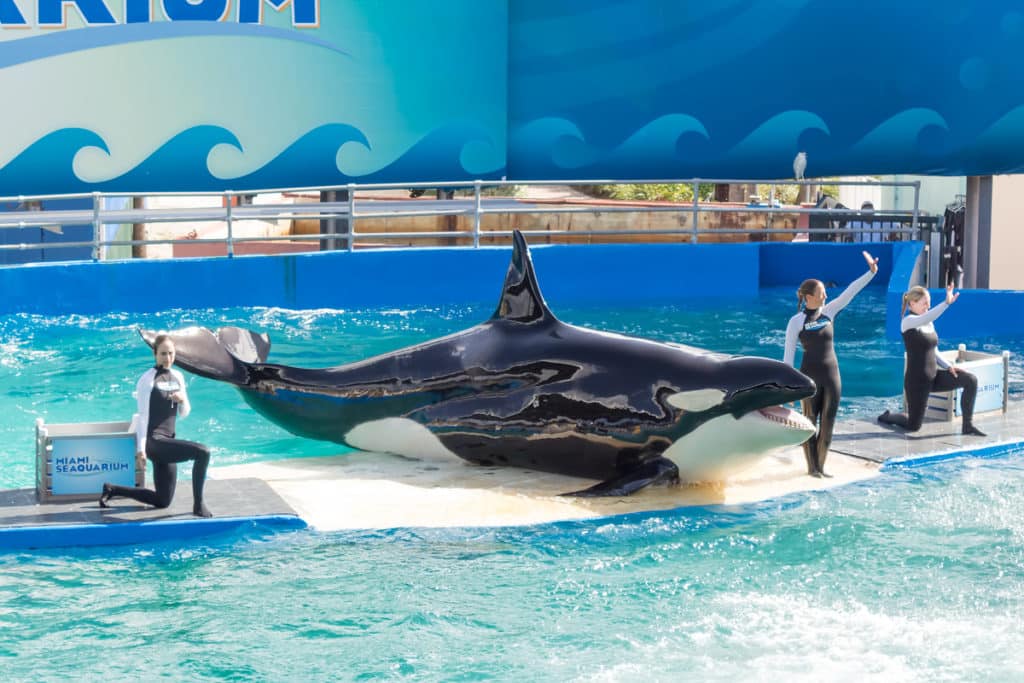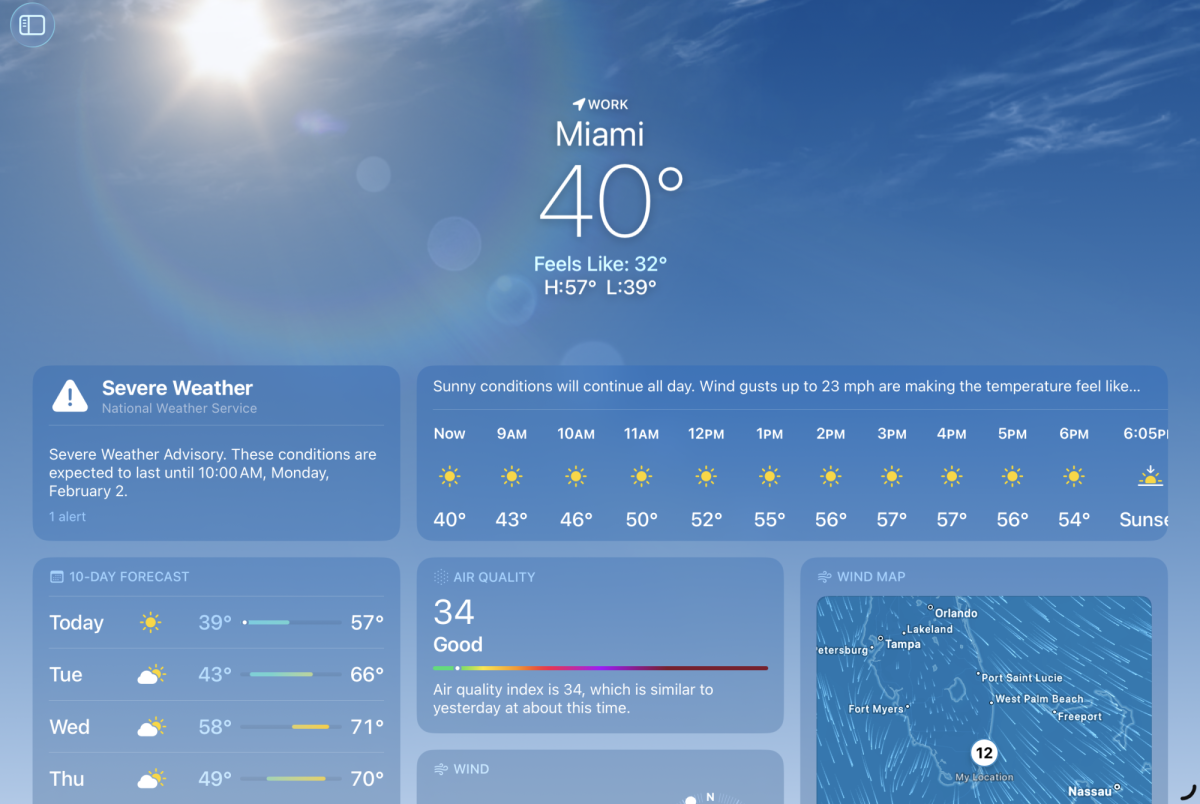In 1970, four baby whales and an adult whale were killed in a violent attack in a pod near Seattle. In the aftermath of this attack, a whale that was later known as Lolita was captured. She was sent to the Miami Seaquarium where she lived in captivity for over 50 years as entertainment to paying customers.
Before her capture, Lolita was a bright soul. She was born around 1967, to her probable mother L25, also known as “Ocean Sun.” She was likely very close to her mother, leaving to explore the ocean with other young whales until ultimately returning to Ocean Sun at the end of the day. She was a young whale, just about to start the rest of her life. She was curious and determined to learn, often departing home with her peers to practice catching fish.
All of that would change after she was violently ripped away from what she called home forever.
“People need to know about what happened to Lolita,” said senior Sebastian Debora. “There are many animals with stories just like hers,” he added.
For 53 years, Lolita was confined to a 24 meters long and 10 meters wide prison, just four times her size. She would have to circle around her tank 600 times in order to travel the same distance that non-captive orcas travel in one day. At her time at the Miami Seaquarium, she was forced to perform for basic comforts and needs, such as food, attention and affection. Since she knows the consequences of her actions, there have only been a few rare occasions where she refused to perform.

“I’m very disappointed in the Seaquarium for how they treated Lolita all of these years and how they didn’t listen to the criticism from scientists and experts,” said senior Leandra Obando about Lolita’s untimely death.
The Orca Network, a non-profit organization, has stated that Lolita has outlived “ all of the approximately 44 other Southern Resident orcas who survived capture operations and were delivered to parks within three years of her capture.”
Throughout the years that Lolita had been in captivity, there has been a widespread debate about whether or not she should have been released back into the ocean before her death. Some argued that no matter what, Lolita should be able to live freely as soon as possible. On the other hand, though, Lolita may not have been equipped for release. Changes in environment and lack of being pumped with medicines may have led her to develop diseases like pneumonia. Also, she had not had to fend for herself for over 50 years, being taken care of and fed by Seaquarium and staff members for most of her life.
Despite these arguments, Lolita was set to be released in March of 2024, however that was not able to happen. The Miami Seaquarium stated that Lolita began to show “serious signs of discomfort” in the few days before her passing. Lolita tragically died of a renal condition on Friday, just a few months before her release date. The Seaquarium was closed on Saturday to mourn the loss of the beloved orca.
This story, although painful, should be a wake up call for everyone to raise awareness for animal cruelty and issues that may exist in zoos, aquariums, and other places where animals may be being treated unfairly.









